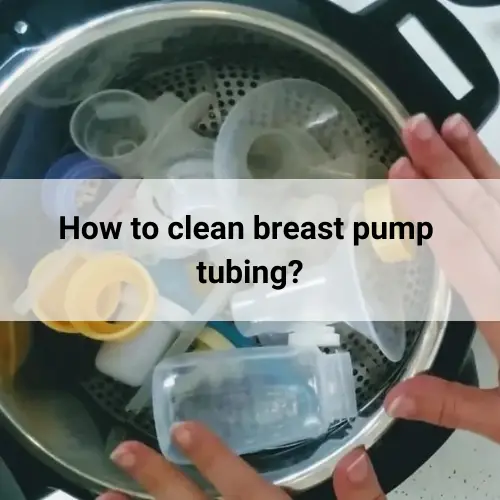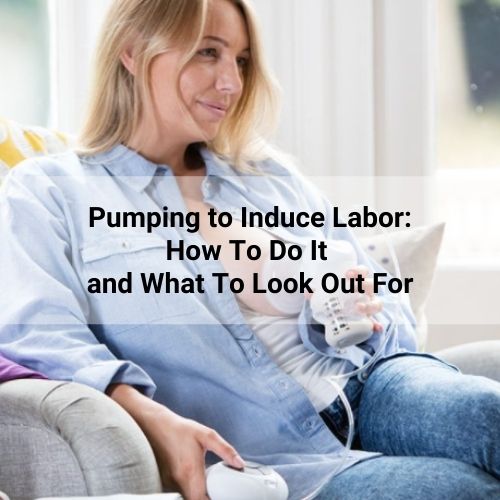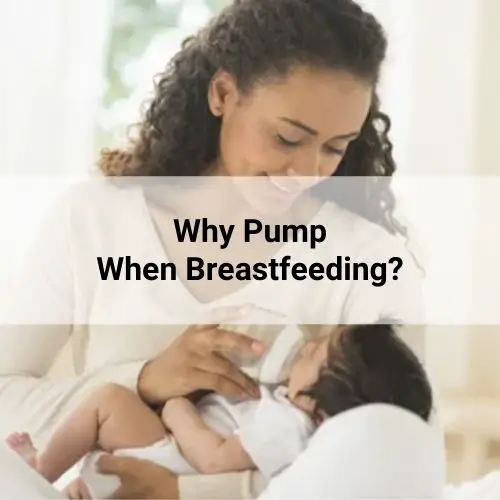Let’s talk about exclusive pumping, which is when you feed your child breastmilk without actually breastfeeding them. (In other words, you exclusively pump your breastmilk for feeding.)
(If you’re new to breastfeeding and breast pumping, check out our article Breastfeeding and Pumping Schedule: Sample Schedules for Nursing Newborns.)
Table of Contents
Is Exclusive Pumping Right for You?
Having a child can seem overwhelming especially for the first-timers. People around you may tell you how your schedule is going to change with sleepless nights and constantly tending to your new-born. This can seem daunting especially if you do not have much help around you.
To add to this, if you have a career or other commitments, or some health issues, you may feel that you are not prepared to face the circumstances.
For one, let me tell you that the anxiety that you are experiencing is perfectly natural and is felt by one and all in your situation. The best way to cope with this ‘fear of the unknown’ is to equip yourself with the right information and have a plan in place.
The primary requirement of the new-born is nutrition and Nature has provided for it through the most beautiful delivery route!
However, sometimes the new-born may not be able to suckle directly from the breast. This could occur if your new-born is premature and is hospitalised or is unable to latch on to the nipple for some reason. Nursing is also difficult if you have multiple babies, or if breastfeeding is painful or nipples are retracted.
At times, everything may be fine, but you need to resume your work or studies, or you need to monitor your child’s intake. Or you may just prefer not to breastfeed! Whatever the reason, remember that not being able to breastfeed every 2 hours does not mean that your baby should be deprived of your breast milk.
Breast milk is the ideal food for your baby that provides nutrients and hydration as per his/her requirements. Studies have shown that the nature of breast milk changes depending on the requirements of your child.
Breast milk provides antibodies, protects your child from illnesses and conditions like obesity in the future. In short, there is no substitute for breast milk, and you should try to ensure that your child receives it. Pumping out your milk is an intermediate solution between direct breastfeeding and formula milk.
What is Exclusive Pumping?
Exclusive Pumping or EPing is when you meet all the nutritional requirements of the child only using extracted breast milk without any supplementary infant formula. It is not an easy task as it takes time and effort to pump out the milk, keep lactation going, and sterilizing the pump, bottles, nipples, etc.
EPing is a commitment and requires a conscious decision to do what is best for the baby given the circumstances.
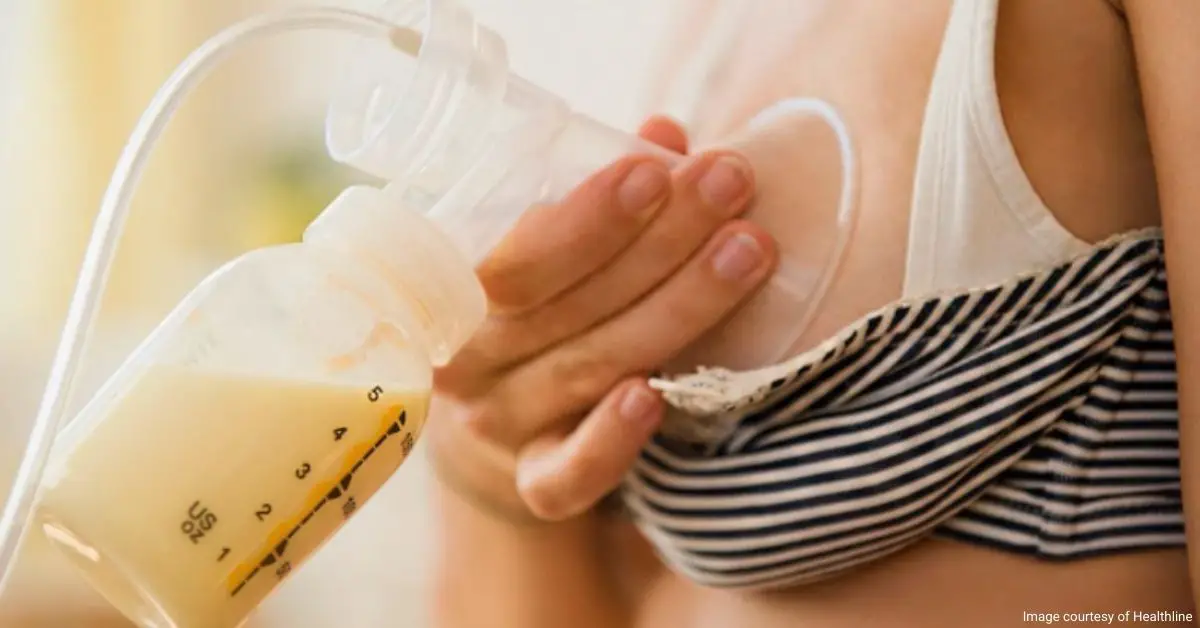
What are the pros and cons of pumping instead of nursing?
Traditionally we are tuned to accept that there is no alternative to nursing, and you have to be around to nurse your baby every 2 to 3 hours. With changing lifestyles and roles, this may not be possible and exclusive pumping provides a good alternative to nursing without using infant formula.
Check out the latest manual breast pump pricing on Amazon, here.
Pros of pumping include:
- Providing breast milk which is naturally engineered to meet the nutritional and hydration needs of the baby along with providing protective antibodies. It sets the basis for good long-term health of your child by preventing chronic illnesses in the future.
- It gives you as the mother the flexibility to return to your duties without having to compromise with infant formula and its side effects.
- Using pumped milk allows sharing of duties between you and another caregiver.
- Pumped milk helps manage during medical conditions in the mother or baby.
- You can monitor the intake of your child.
- You can schedule the feeding and find time for yourself and your work schedule.
- You could use the breast pump to stimulate milk production and flow.
- Donor breast milk is possible for adopted children.
Cons of pumping include:
- It requires greater time and effort.
- It could result in lactational failure if not done properly.
- On the other hand, pumping could stimulate milk production excessively and result in untimely letdown or leakage of milk.
- Milk kept in the fridge loses some of its nutrients.
- Bonding with the baby is compromised.
- Chances of infection are increased if proper hygiene is not maintained.
- The baby may not suckle on the breast properly if you wish to feed with both bottle and breast. The suckling on the breast requires greater effort and takes some time for the flow to begin, unlike the bottle. The baby may get confused and not be responsive to intermittent nursing.
- You could injure your nipple and areola if aggressive pumping is done.
- Bottle feeding affects the baby’s teeth in the long run.
Why would a mother choose exclusive pumping and what do they need to bear in mind?
You could choose EPing to breastfeed for any of the reasons already mentioned. But remember that pumping milk takes a lot of effort in addition to the precautions to be taken during nursing. EPing does not mean that you can smoke or have excess alcohol or caffeine.
Several medications are also not indicated during lactation and you should consult your doctor on this. You may also need to consult on contraception which is safe during this period.
You need to maintain a good caloric intake with a nutritious and well-balanced diet. This will ensure that the milk production is good, and also that you do not end up with nutritional deficiencies. Take the supplements recommended by your doctor regularly.
For your baby, you need to monitor the intake to ensure that it is adequate. The best indicator for this is the normal age-related weight gain, growth, and achieving timely milestones. Passing adequate urine with no signs of dehydration and an active baby are some indicators that you can monitor daily.
How common is exclusive pumping?
Until a few years ago, EPing was uncommon. Women who exclusively pumped had to face some social stigma too especially if they did it to return to work. However, the number of women who are opting for EPing is rising as they understand the advantage of breast milk over infant formula.
The lack of research precludes the quoting of exact figures, but today you are more likely to know someone around you who has used a breast pump at some time or the other!
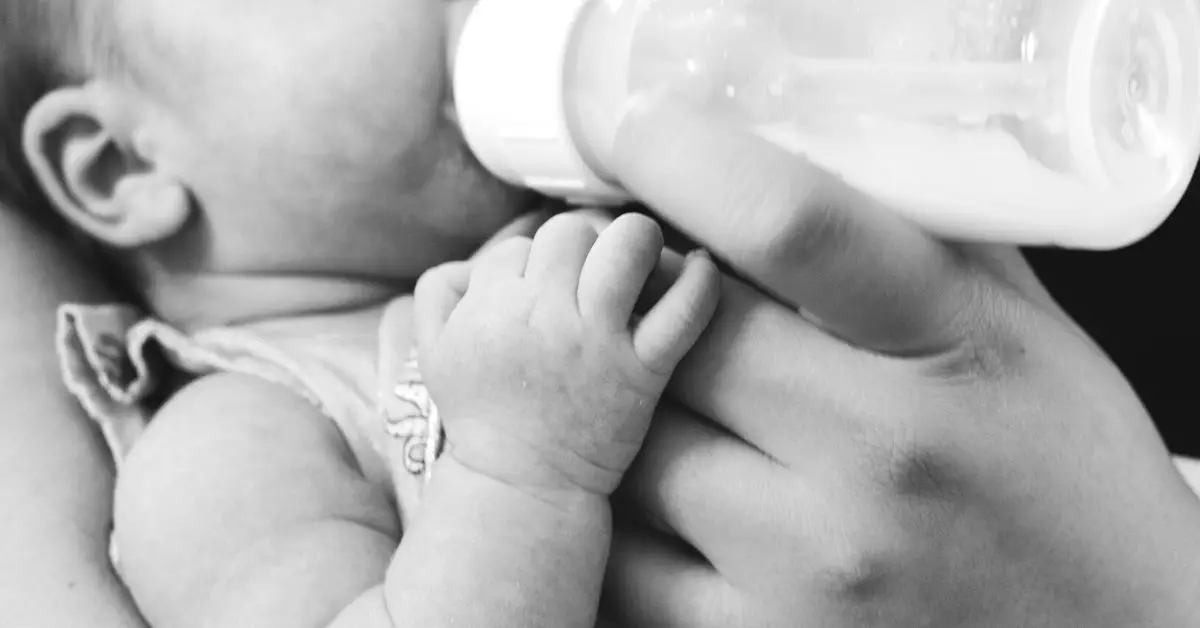
How often should I be pumping?
To understand this, imagine that pumping is like feeding your baby. So, you need to pump at an interval of a maximum 2 to 3 hours. The more the activity simulates nursing, the easier it is to maintain milk production and flow during pumping.
How long should I be pumping for?
In analogy to breast feeding sessions, pumping should continue for about 20 minutes. More importantly, understand that your breast should feel empty at the end of pumping. The foremilk and hindmilk i.e. the initial and the last part of the breast milk respectively have different properties and the baby requires both.
Even after your breast feels empty and milk stops flowing, continue to pump for another 5 minutes. This conveys to your brain that you need to produce more milk and helps stimulate lactation.
Be mindful of simple things and you will have a fruitful experience. E.g. take out the time to pump milk, do not squeeze it in between your chores as another routine to be done. Mentally and emotionally be in a calm place to have the best results. Think of your baby and how he/she is going to benefit from the nourishment you are providing.
Do not be in a rush to finish off with the pumping activity. Do not increase the speed of the pump to an uncomfortable level thinking it will make things faster. Pain is a strong negative stimulus for milk production and flow.
Vigorous pumping can damage the breast tissue, nipple, and areola and prevent you from further pumping. This can finally result in lactational failure all because of faulty technique. EPing gives you the flexibility to attend to other things but you need to accept the added commitment.
How much milk should I feed per bottle?
If you ask a mother who is breastfeeding her baby as to how much milk the child consumes each time, she will tell you that at times the baby is hungry and empties the breast. At other times, he/she just suckles for some time and is done.
The amount of milk with every intake is variable and you should not assume that the baby should finish the contents of the bottle every time. The daily consumption is more or less constant and is around 25 to 30 oz or 750 to 900 mL for the first 6 months.
Click here to look into the latest anti-colic baby bottle feeding set on Amazon.
How to bottle feed?
Breastfeeding requires effort on the part of the baby to suckle. In contrast, bottle feeding is much easier for the baby as the milk flows in without much effort. ‘Slow flow nipples’ should be used to prevent overfeeding.
Demand feeding is recommended over scheduled feeding. Do not be in a rush and overload the baby. Be gentle and slow while following the needs of your baby.
Refrigerated milk should not be heated or defrosted in the microwave or over the stove. This not only destroys the nutritional quality but also stands the chance of causing oral burns to the baby. Let the milk come to room temperature and gently mix by swirling, no rigorous shaking!
How can I increase my milk production?
The following tips can help you maintain a healthy milk flow:
- Follow good pumping practices mentioned in the above paragraphs. This factor is singularly effective in ensuring successful EPing.
- Eat healthily.
- Stay well hydrated.
- Do not overexert mentally or physically. Get your rest and sleep. Try to relax and understand fully well that childbirth and lactation are demanding on your mind and body and you need to go easy on yourself before expecting your pre-pregnancy state of performance and appearance.

When can I stop pumping and move on to solids?
The baby should be exclusively breast fed during the first 6 months as per current recommendations. Exclusive breast feeding takes care of all the requirements of the child and he/she does not even require water during this period.
After 6 months, get your baby gradually started on other foods, initially liquid, then semisolids, and finally solids. You may postpone the introduction of eggs, peanuts, and other potential allergic ingredients. But by the age of 1 year, your child should consume most of the foods prepared for the adults in the house, although in an altered form.
You can continue feeding pumped milk even after 6 months, but the intake will gradually decrease as your child starts solid foods. Let nature run its course, and usually, by the end of the first year, your baby would have successfully and completely weaned off breast milk.
Exclusive Pumping: A Workable Alternative
Exclusive pumping is a workable alternative for you if you cannot breastfeed for any reason. It is a much better and physiological alternative to infant formula as the latter creates future health issues for not only the child but also prolongs your recovery after delivery. A good breast pump with good pumping practices and a healthy mind in a healthy body ensures successful EPing. It is not difficult but requires attention and commitment; a small price to pay to ensure future health dividends for you and your baby.
Related articles you might also enjoy:

Dr Kavita Ramanathan
Dr Kavita Ramanathan is a practising pathologist with over 12 years of clinical experience. Having completed her MBBS and MD in Pathology from the University of Mumbai, she went on to work for several institutions in India. As a medical writer, she writes to give practical tips to the non-technical audience.
As a mother to a young girl, motherhood is a topic that is close to her heart. Her own experience in raising her daughter while balancing her residency and medical career has taught her many practical aspects of successful child-rearing. Her knowledge of medicine and skill as a writer appeals to a broad spectrum of parents and mothers.

